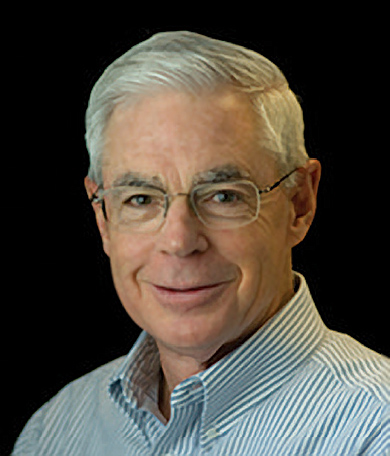Finding Hope
Astudy conducted by researchers at the University of Minnesota found that almost 15 percent of American teenagers felt it was “highly likely” that they would die before their 35th birthday. Those with this pessimistic outlook were more likely to engage in reckless behavior. Dr. Iris Borowsky, author of the study published in Pediatrics magazine, said: “These youth may take risks because they feel hopeless and figure that not much is at stake.”
Be Who You Are
While awaiting a routine medical procedure in a local hospital, I noticed a wall plaque showing Christ on a cross. Later, a nurse asked me several administrative questions, in-cluding, “Do you have any spiritual needs you’d like to discuss with a chaplain?” I said that I appreciated her asking that question, which I found unusual in today’s world. She replied with a smile that they are a faith-based hospital and “that’s part of our mission.” I was impressed that the people were not afraid to be who they are in an increasingly secular and pluralistic society.
The Right Ingredients
Although my culinary skills remain undeveloped, occasionally I use a box of premixed ingredients to make a cake. After adding eggs, vegetable oil, and water, I stir it all together. To bake a palate-pleasing cake, it’s vital to have the correct balance of the right ingredients. That helps me picture the relationship of the greatest commandment (Matt. 22:36-38) and the Great Commission (28:19-20) as we spread the gospel.
He Guards Me Well
During the quiet moments before a Sunday morning service, the organist played a hymn that was new to me. I turned to the page noted in the hymnal and read the words of the song “The Lord My Shepherd Guards Me Well,” a beautiful paraphrase of Psalm 23:
The Joy Of Remembering
A long-time friend described the days surrounding his 90th birthday as “a time . . . to do a little reflecting, looking in the rearview mirror of my life, and spending many hours in what I call ‘The Grace of Remembrance.’ It’s so easy to forget all the ways that the Lord has led! ‘Forget not all His benefits’” (Ps. 103:2).
Free To Choose
When it was learned that the biggest football game of the 2011 season was scheduled to be played on Yom Kippur, the student government at the University of Texas petitioned school officials to change the date. They said it was unfair to make Jewish students choose between the classic football rivalry with Oklahoma and observing their most important and sacred holy day of the year. But the date was not changed. Even in societies where people have religious freedom, difficult choices are still required of every person of faith.
The Story Of A Wall
While visiting the ruins of Hadrian’s Wall in Northern England, I reflected on the fact that this may be the most remembered achievement of the Roman emperor who came to power in ad 117. As many as 18,000 Roman soldiers manned this 80-mile-long barrier, built to keep the northern barbarians from invading the south.
Beyond The Status Quo
Dr. Jack Mezirow, professor emeri- tus at Columbia Teachers College, believes that an essential element in adult learning is to challenge our own ingrained perceptions and examine our insights critically. Dr. Mezirow says that adults learn best when faced with what he calls a “disorienting dilemma”—something that “helps you critically reflect on the assumptions you’ve acquired” (Barbara Strauch, The New York Times). This is the opposite of saying, “My mind is made up—don’t confuse me with the facts.”

